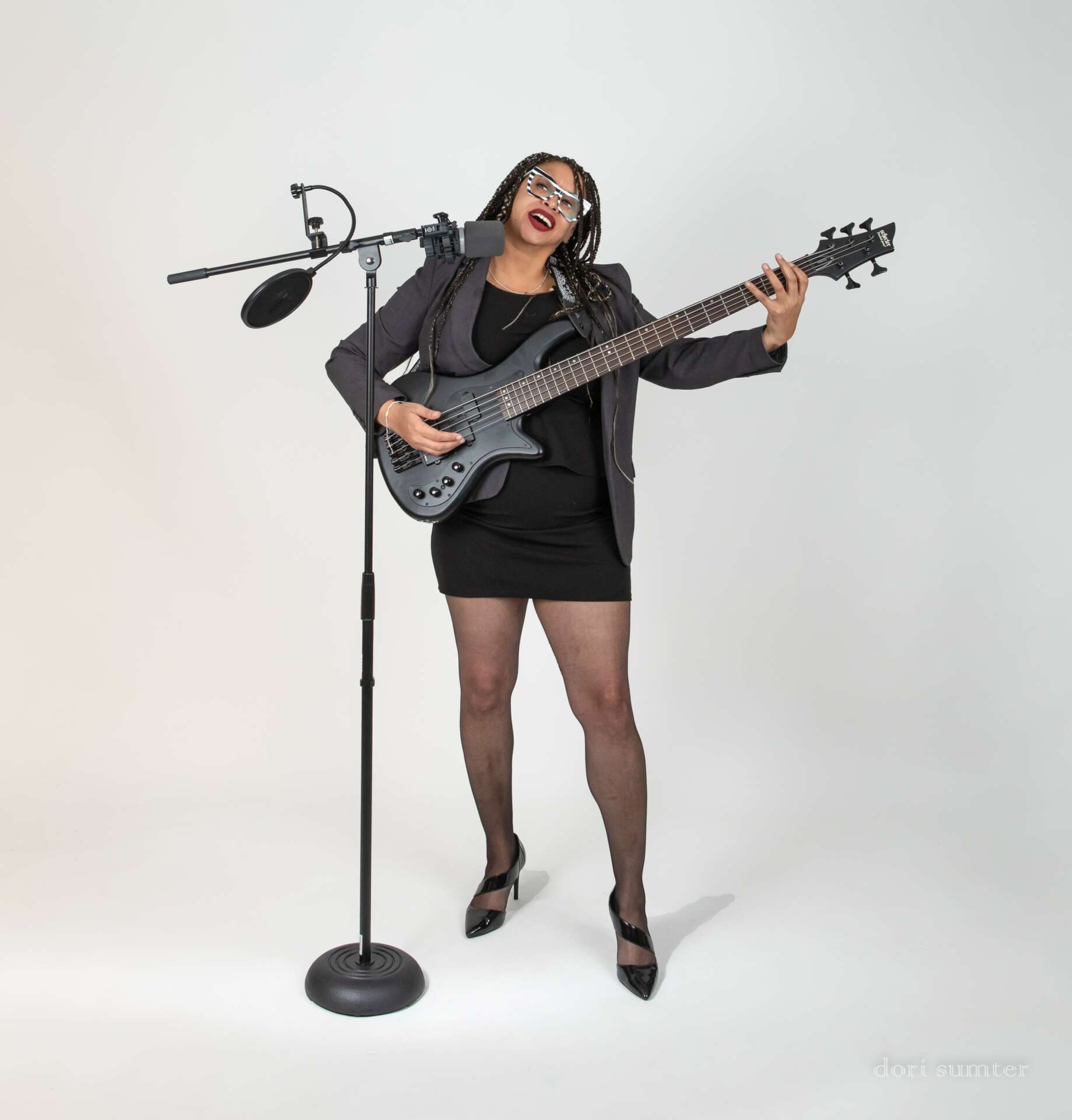Alright – so today we’ve got the honor of introducing you to Gwenyth Hayes. We think you’ll enjoy our conversation, we’ve shared it below.
Gwenyth, appreciate you joining us today. Do you feel you or your work has ever been misunderstood or mischaracterized? If so, tell us the story and how/why it happened and if there are any interesting learnings or insights you took from the experience?
I feel at times, as an artist am often mischaracterized or misunderstood because I tend to not fit the preconceived notions people may have about me based on my looks or the limited information they may have of my background. Throughout my career as a musician, I have played a variety of genres including blues, jazz, soul, R&B, pop, cover bands, and classical. I also come from a background of diverse musical influences, I find that my music is often mischaracterized as I am intentionally trying to fuse a variety of different genres and musical influences, and I purposefully select musicians with different backgrounds who are so intuitive at their craft that they are artists in and of themselves on their instruments. The music I hear in my head is not consciously trying to sound like any genre or artist, and I try to execute it to the best of my ability with the tools at hand and the collaboration of the trusted improvisational instrumentalists who have supported my vision.
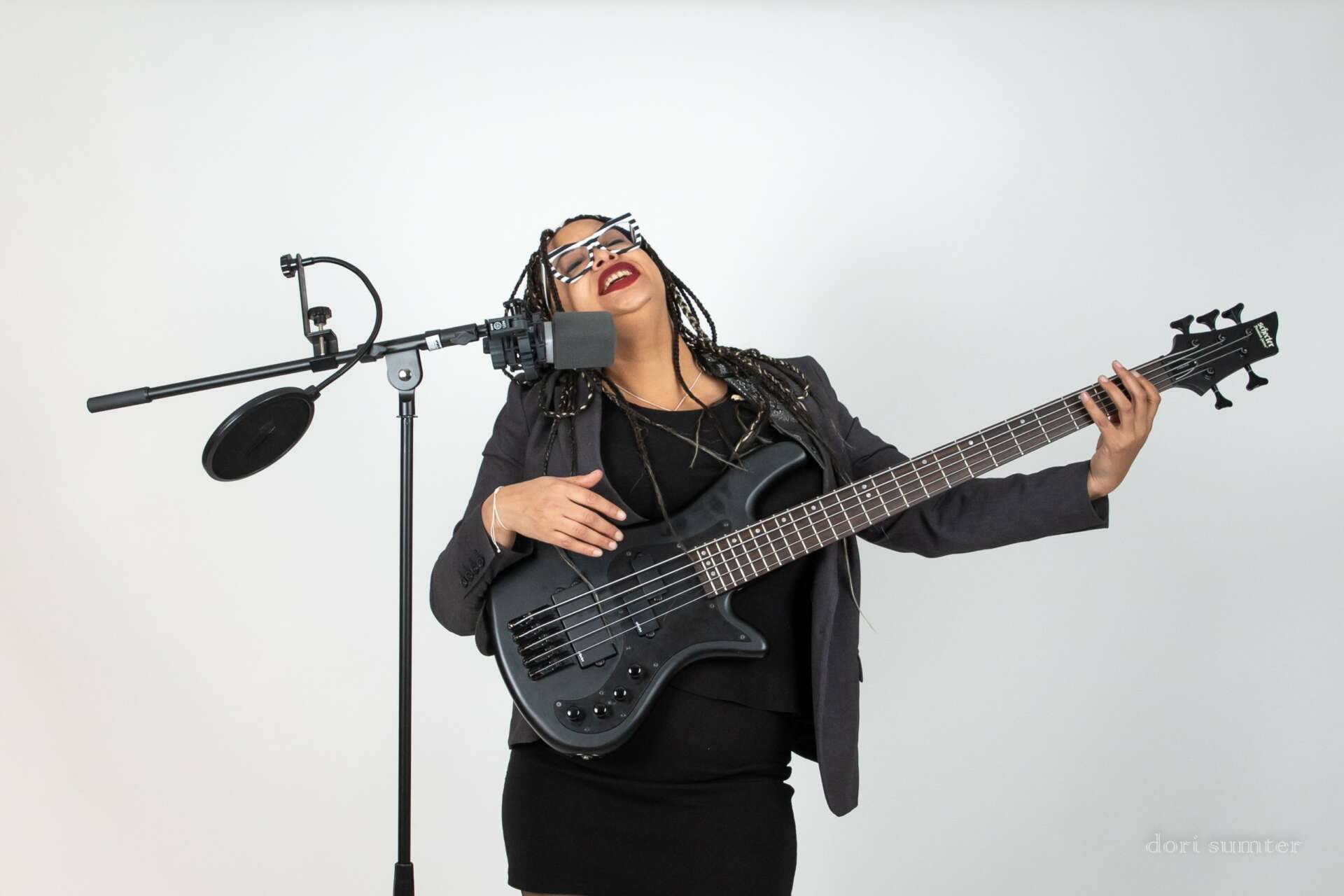
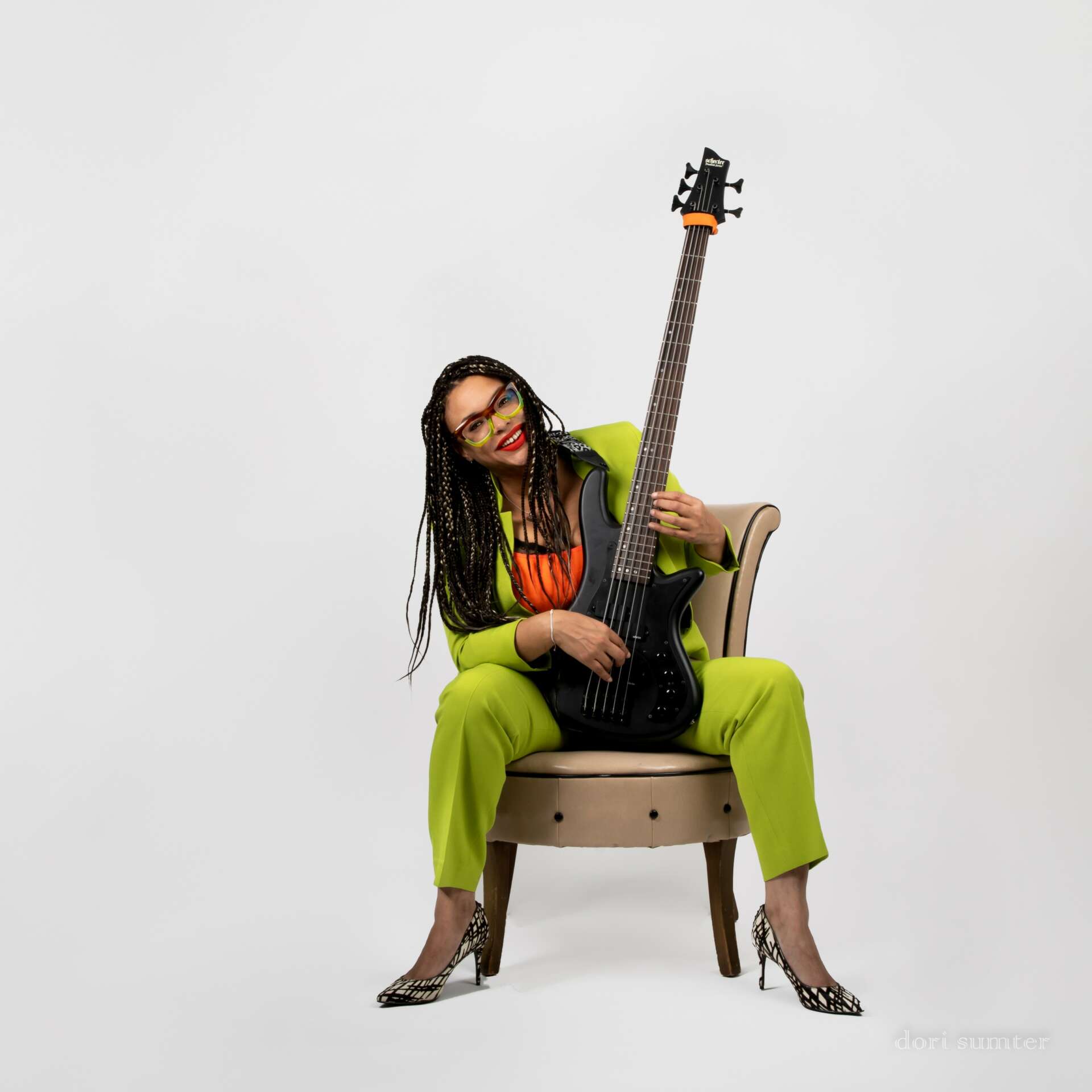
Gwenyth, love having you share your insights with us. Before we ask you more questions, maybe you can take a moment to introduce yourself to our readers who might have missed our earlier conversations?
I started in the music industry as a bit of a fluke. I grew up in a musical family but I had not intended on becoming a professional musician, but one day, when I was around 19 years old, I wandered into a bar that was having a blues jam and I somehow told someone I used to play the upright bass and I now had an electric. Somehow I ended up on stage and unbeknownst to me, the one blues song I know how to play must have been pretty good because they invited me back. I must say, however, that after that it was a bit of a struggle. I was a bit of a fish out of water as I was significantly younger than most of the players there (I am not sure I was even old enough to be in there in the first place), and I was the only girl. What’s more, I also was unfamiliar with the style of music as I had not grown up hearing it much, so I had a lot to learn. As you may imagine, I faced some unique challenges as a teenage/young adult girl trying to fit in with a bunch of older men. Sometimes I would have some unpleasant experiences because of that, and I honestly do not know why I did not give up as it likely would have been the most reasonable and safe thing to do, but nevertheless, I persisted.
I found that I was so frustrated by not fitting in that it kind of fueled me to try and become a better player. I also found, as a financially struggling young woman who was dealing with a great deal of hardship in other areas of my life, music was something I could do that was free and would allow me to escape my reality temporarily. I may not have been conscious of the fact that I was doing that, but in retrospect, I realize it may have saved me. As time went on, I got better as a musician and began to pick up gigs that helped relieve some of my financial burdens. I opted not to go to go to music school, as I was unsure if it would lift me out of poverty so I chose psychology and played gigs to support myself through college. I now have a master’s degree and credentials that I can always fall back on.
Now decades have gone by and I am still at it. My music has taken me on tour all over the country and I have played hundreds of gigs as a bassist, and then for the past decade or so as a vocalist/bassist and recording artist. Not only has this helped me grow as a musician, it helped me grow as a person. I am very grateful that I have had these experiences. What I believe may set me apart from others is that after all those years of trying to fit in stylistically or culturally with the other musicians, I gave up. This was freeing because it allowed me to be myself and begin to find my voice. I just want to play music to the best of my ability in a way that feels true to me and resonates with others. Recently I was induced as one of the 2023 Amplify fellowship recipients that helped me fund a recording of original music. I will soon be releasing songs from that throughout 2024.
What I am most proud of is my persistence and my ability to continue to work hard enough long enough that I now am starting to see the fruits of my labor materialize. Over the past year, I have played numerous gigs and festivals throughout Southeastern Michigan, written and recorded recordings of my original tunes with my favorite musicians, maintained a full-time job, got a wonderful apartment, earned my full licensure in Social Work, and started working in private practice.
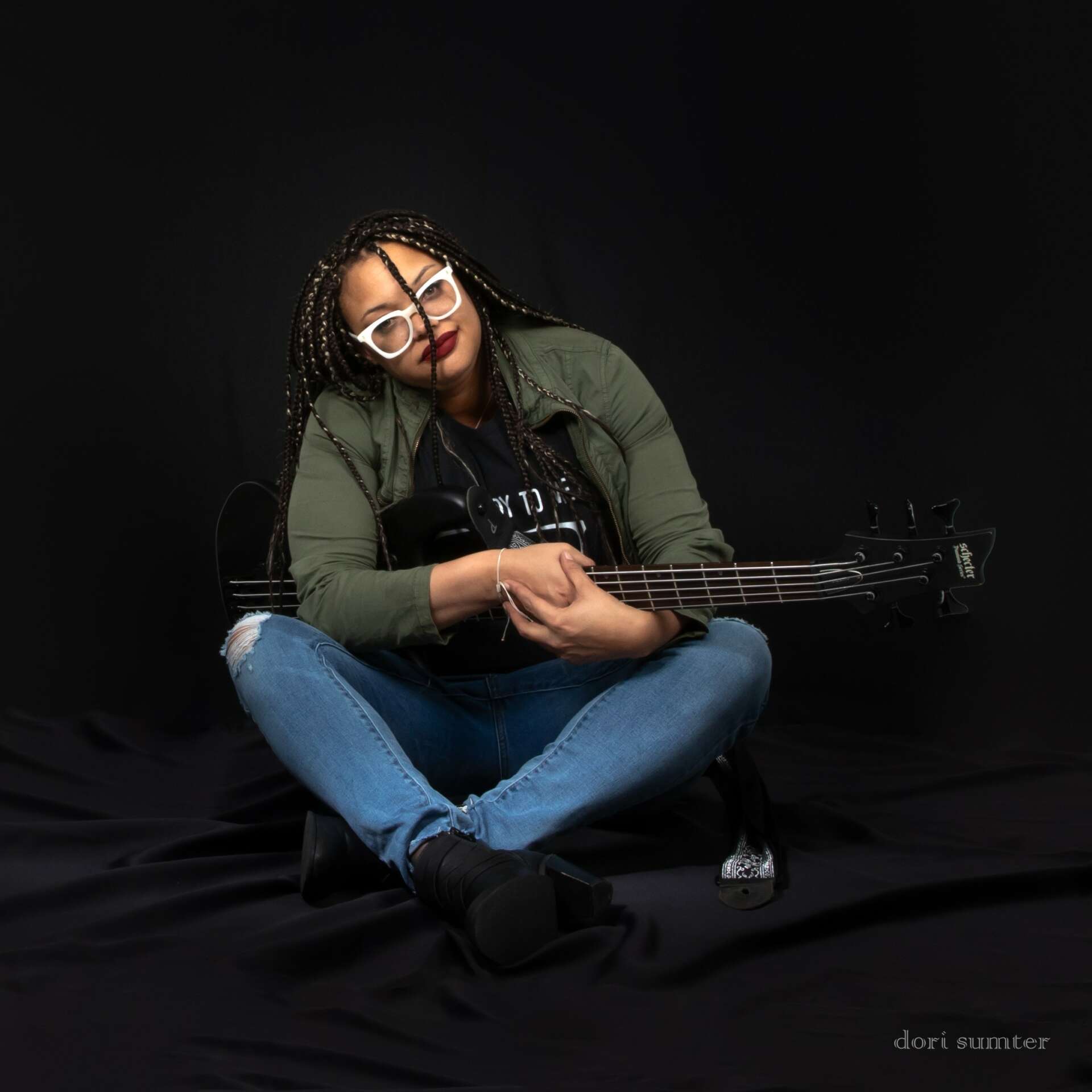
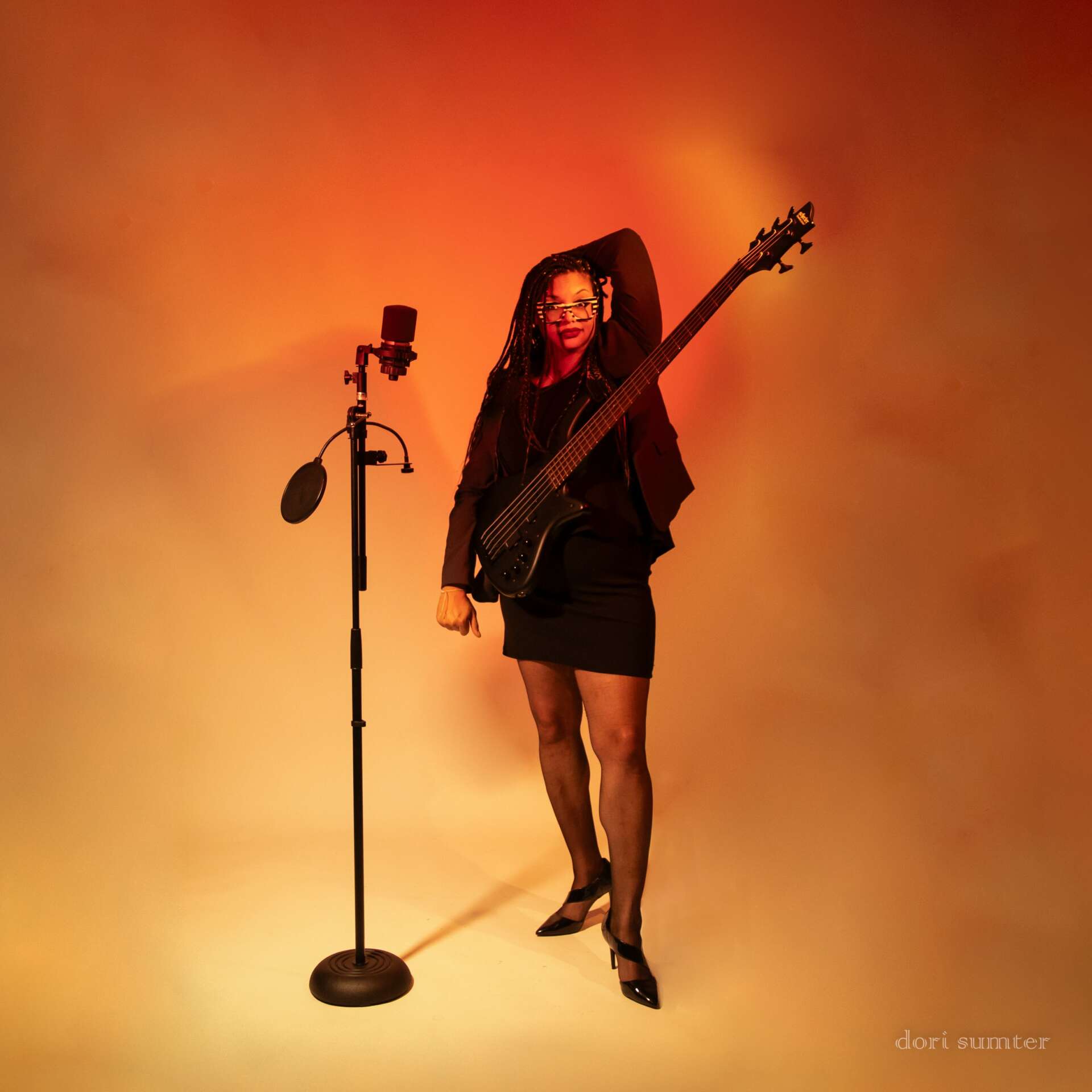
Do you think there is something that non-creatives might struggle to understand about your journey as a creative? Maybe you can shed some light?
Sometimes I think that people assume that being a professional musician is just easy and fun all the time. I hear things like. “you are so lucky to get paid for doing something you love.” Granted being a musician can be pretty cool at times but behind the scenes, there is a lot you have to do to keep your head above water that I was not anticipating when I became a bandleader/recording artist. I did not realize that you have to do things that are not fun like taxes, contracts, marketing, promotion, graphic design, event planning, training, coordinating logistics, fixing broken equipment… that has nothing to do with music. These things are not glamorous and can be time-consuming, and difficult to learn and manage without support. It is often difficult to find support or sympathy from people who think you are just partying all the time and living your dream.
As a person who is old enough now to have lost some of my mentors, and as a social worker, It is scary and difficult to watch musicians age, get sick, or develop disabilities without the protections that might come from a more traditional job. I now understand that it can be very hard for older or disabled musicians to maintain their financial security if they are unable to do all the things they need to to get work and keep working. In a perfect world, I would start a non-profit to provide services to elder musicians and teach younger musicians to protect themselves.
What do you find most rewarding about being a creative?
The most rewarding aspect of being a musician is making everyone in the room share the same experience. Creating a vibe or trance-like state is one of the most amazing feelings I have ever had. What is beautiful about music is that I can communicate emotions in an intangible way that is indescribable but universal in every culture. Music is an amazing art form that defies all logic and I continue to be in awe of it. I am grateful that I can be a part of it.
Contact Info:
- Website: gwenythhayes.com
- Instagram: ladybass79
- Facebook: https://www.facebook.com/gwenythhayesmusic
- Youtube: https://www.youtube.com/@gwenythhayes
- Other: ReverbNation reverbnation.com/gwenythhayes Apple Music music.apple.com/us/artist/gwenyth-hayes/1519360906 Spotify open.spotify.com/artist/7jrHuXGSbXn6rgrbz4x7MM?si=x7aQEnDuR7OHVMD5KJ7J_A Amazon Music amazon.com/music/player/albums/B097RB16V1?marketplaceId=ATVPDKIKX0DER&musicTerritory=US&ref=dm_sh_ABKIRU7aW0b8BMLrwbxSCPTR4
Image Credits
Additional Photos can be found here: https://dorisumter.smugmug.com/Musicians-Singers-Artists/Gwenyth-Hayes-2023 Please credit Dori Sumpter for all images.


